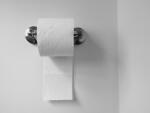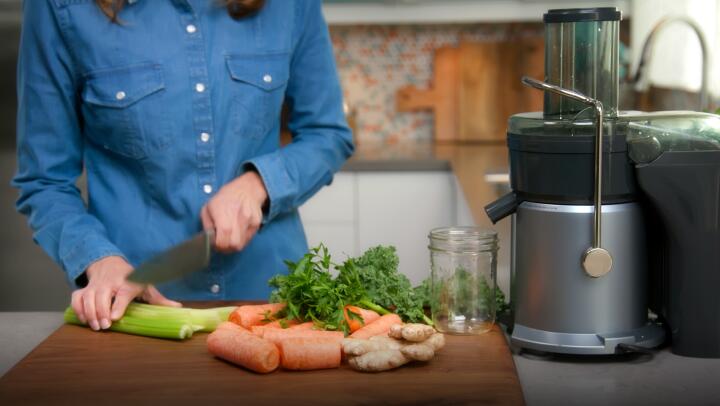What is renal colic?
Renal colic is a type of pain caused by kidney stones. Kidney stones (urolithiasis) are crystals that form from chemicals in the urine. Usually, a stone develops because too much of a single chemical is present in the urine. A stone may block the flow of urine and can cause pain if it travels down the tubes of the urinary tract.
While kidney stones can happen to anyone, they are most common in men between the ages of 20 and 30. Kidney stones, especially calcium stones, are common. You can have more than one kidney stone at a time, and they may be recurrent. With treatment, however, the symptoms of kidney stones usually can be effectively managed without complications (Source:
Symptoms of renal colic include pain, especially in the back, side or groin; blood in the urine; abnormally colored urine; fever; chills; and nausea with or without vomiting. Some have described renal colic as the most intense painful experience encountered in life. The tendency to form kidney stones may arise because of bowel disease, surgery, genetics, certain dietary factors, or diseases, such as cystinuria.
Treatment for kidney stones and renal colic depends on the type and size of stones. Small stones may be excreted on their own, especially if you drink a lot of water. Pain relievers may also be prescribed or used to manage the pain of kidney stones. Depending on the chemical makeup of the kidney stone, your doctor may prescribe a variety of medications. In very severe cases, surgery may be required to remove the stone.
Seek immediate medical care (call 911) for serious symptoms, such as a high fever (higher than 101 degrees Fahrenheit), severe pain, or uncontrollable vomiting.
Seek prompt medical care if you are being treated for kidney stones and symptoms return or worsen, or new symptoms develop.
What are the symptoms of renal colic?
Symptoms of renal colic are related to the formation of crystals in the kidneys. These stones can block urine output, causing pain, swelling and infection.
Common symptoms of renal colic
You may experience renal colic symptoms daily or only occasionally. Any of these symptoms can be severe:
- Abnormally colored urine
- Fever with or without chills
- Foul-smelling urine
- Nausea with or without vomiting
- Pain in the side, back, abdomen or groin that can be severe
Symptoms that might indicate a serious condition
In some cases, renal colic can be a serious condition that should be immediately evaluated in an emergency setting. Seek immediate medical care (call 911) if you, or someone you are with, have any of these serious symptoms including:
- High fever (higher than 101 degrees Fahrenheit)
- Inability to urinate
- Severe pain
- Uncontrollable vomiting
What causes renal colic?
Renal colic is triggered by the buildup of crystals, or stones, in the kidneys. When these stones interfere with the flow of urine, they can cause the kidneys to swell, producing waves of pain (colic). Kidney stones can form for a variety of reasons.
Causes of kidney stones
The kidney stones that lead to renal colic can be made up of a variety of chemicals and may be caused by the following:
- Chemotherapy
- Cystinuria (inherited disorder characterized by an excess of cystine in the urine)
- Disease of the small intestine
- Gout (type of arthritis caused by a buildup of uric acid in the joints)
- Hypercalciuria (excess calcium in the urine)
- Hyperuricosuria (excess uric acid in the urine)
- Inflammatory bowel diseases (includes Crohn’s disease and ulcerative colitis)
- Renal (kidney) defects
- Surgery
- Urinary tract infection
What are the risk factors for renal colic?
A number of factors increase the risk of developing renal colic. Not all people with risk factors will get renal colic. Risk factors include:
- Dehydration
- Diet high in vitamin D
- Diuretic overuse
- Family history of kidney stones
- Intestinal malabsorption (Crohn’s disease, postoperative, etc.)
- Personal history of kidney stones
- Pregnancy
- Recent surgery
- Urinary tract infection
- Use of calcium-based antacids
- Use of certain medications
Reducing your risk of renal colic
You may be able to reduce your risk of developing kidney stones and renal colic by:
- Avoiding calcium in pill form
- Avoiding certain foods that are high in oxalate, such as rhubarb and spinach
- Avoiding excess meat, fish and poultry
- Drinking enough fluids, especially water, to prevent dehydration
How is renal colic treated?
Treatment for renal colic and kidney stones involves reducing pain and breaking up the stones. In some cases, kidney stones may pass on their own, allowing symptoms of renal colic to resolve. However, it is common for kidney stones to recur. Drinking plenty of fluids may help the stone to pass and may lessen the pain of renal colic.
Medications for renal colic and kidney stones
Certain medications may be used to help break down kidney stones, and other medications may be used to treat pain. Medications for renal colic include:
- Allopurinol (for uric acid kidney stones)
- Alpha-blocker medications to help stones pass
- Antibiotics to clear infections
- Cystine control medications to reduce cystine levels in urine
- Diuretics
- Pain medications
- Potassium citrate or sodium bicarbonate to regulate urine pH and prevent stone formation
- Sodium cellulose phosphate to bind calcium in the intestine
Other treatments for renal colic and kidney stones
In addition to medication, other treatments may be required to treat or remove kidney stones. In some cases, surgery may be required. Treatments for kidney stones include:
- Heat therapy (for pain)
- Lithotripsy (use of ultrasonic vibration to break down kidney stones)
- Surgery to remove large stones
- Ureteral stent placement, to keep the urine tubes from the kidneys to the bladder (ureters) open
- Ureteroscopy (minimally invasive surgery)
What you can do to improve your renal colic
In addition to following the treatment plan prescribed by your medical professional, you may be able to improve your renal colic by:
- Drinking plenty of fluids (six to eight glasses of water per day)
- Using home remedies such as heat pads
- Save any passed stones for testing to help determine underlying cause of stones
What are the potential complications of renal colic?
In many cases, kidney stones will pass on their own. Although renal colic is very painful, it does not usually lead to complications. In some people, however, kidney stones and renal colic may recur. Complications of untreated or poorly controlled renal colic can be serious. You can help minimize your risk of serious complications by following the treatment plan you and your health care professional design specifically for you. Complications of renal colic include:
- Adverse effects of treatment
- Blockage of the urinary tract
- Kidney damage
- Loss of kidney function
- Recurrence of stones
- Urinary tract infection

















